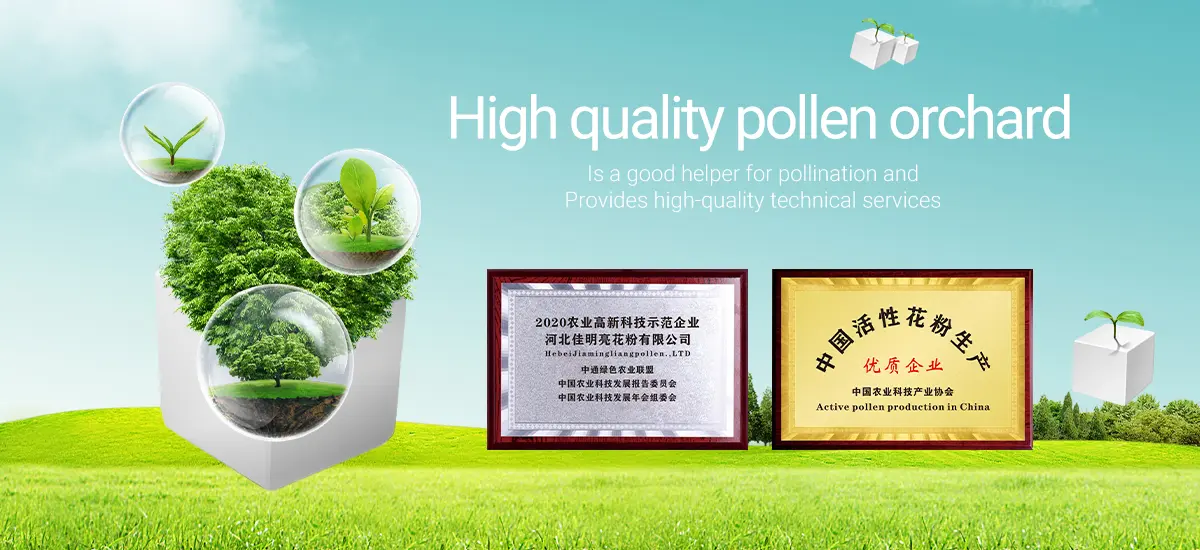Dec . 26, 2024 11:32 Back to list
Apricot Pollen Exporters and Their Impact on Pollination Practices Worldwide
Apricot Pollen A Key Player in Global Pollination and Export
Apricots, scientifically known as *Prunus armeniaca*, are a beloved fruit known for their sweet, tangy flavor and vibrant orange color. These fruits not only delight the palate but also serve as a crucial agricultural commodity in various regions worldwide. One of the most critical factors influencing apricot yield is effective pollination. In recent years, apricot pollen has garnered attention not just for its role in enhancing fruit production but also for its potential as an export commodity. This article delves into the significance of apricot pollen in pollination, its export potential, and the roles of various stakeholders in this burgeoning market.
The Role of Pollination in Apricot Cultivation
Pollination is an essential process in fruit production, influencing both the quantity and quality of the yield. For apricots, cross-pollination is especially important. While some apricot varieties are self-pollinating, many require pollen from different varieties to produce a satisfactory crop. Pollinators, primarily bees, play a vital role in this process. They transfer pollen between flowers, enabling fertilization and fruit set. However, the declining bee populations due to various environmental factors have raised concerns among farmers and producers.
In response to this challenge, the use of pollen as a supplement for pollination is becoming increasingly popular. This method involves collecting pollen from healthy apricot trees and distributing it to orchards during the blooming season. This not only helps ensure successful pollination but also mitigates the risks associated with relying solely on bee activity.
Apricot Pollen as an Export Commodity
As the demand for apricots continues to rise globally, so does the need for efficient pollination solutions. Herein lies the potential for apricot pollen to become a valuable export commodity. Countries with abundant apricot production, such as Turkey, Iran, and the United States, are exploring the possibilities of pollen exportation.
Exporting apricot pollen involves several crucial steps. First, high-quality pollen must be harvested during the peak flowering season when pollen viability is highest. Following collection, it is carefully processed and packaged to preserve its freshness and viability during transportation. Maintaining proper storage conditions is essential to ensure that the pollen remains effective for pollination upon arrival at its destination.
apricot pollen pollination exporters

The export of apricot pollen not only opens new avenues for revenue generation for producers but also supports farmers in other regions faced with pollination challenges. By providing a reliable source of quality pollen, exporters can help enhance apricot yields, ensuring better economic returns for farmers worldwide.
Stakeholders in the Apricot Pollen Market
The apricot pollen export market comprises a variety of stakeholders, each playing a crucial role in the process. Farmers are the primary suppliers of pollen, as they have access to the necessary resources and expertise to collect it. Agricultural cooperatives and associations also play a vital role in organizing pollen collection efforts, ensuring quality standards are met, and facilitating exports.
Importers and distributors in destination countries are necessary to establish a smooth supply chain, connecting exporters with local farmers looking to improve their yields. Additionally, researchers and agricultural extension services are increasingly involved in promoting the benefits of pollen supplementation and educating farmers about best practices in pollen usage.
Furthermore, regulatory bodies are essential to ensure that the exportation process adheres to international standards, which is critical for food safety and quality assurance. Compliance with these regulations fosters trust among consumers and improves marketability.
Conclusion
The significance of apricot pollen in pollination and its potential as an export commodity cannot be overstated. As global demand for apricots continues to grow, the effectiveness of pollination methods becomes increasingly paramount. By leveraging apricot pollen as a vital resource, stakeholders across the agricultural value chain can work together to enhance fruit production, support farmers, and capitalize on new market opportunities. This not only contributes to the sustainability of apricot farming but also promises economic benefits for all involved in the trade, heralding a new era for apricot cultivation and export.
-
Precision Artificial Pollination: Maximize Crop Yields
NewsAug.29,2025
-
Premium Plant Pollen: Enhance Yields & Boost Research
NewsAug.28,2025
-
Artificial Pollination: Boost Crop Yields Efficiently
NewsAug.27,2025
-
Premium Kiwipollen for Sale | Male Kiwi Pollen Supply
NewsAug.26,2025
-
High-Quality Apple Tree Pollen for Sale - Boost Your Harvest!
NewsAug.25,2025
-
Pure Plant Pollen: Optimize Pollination & Boost Yields
NewsAug.24,2025